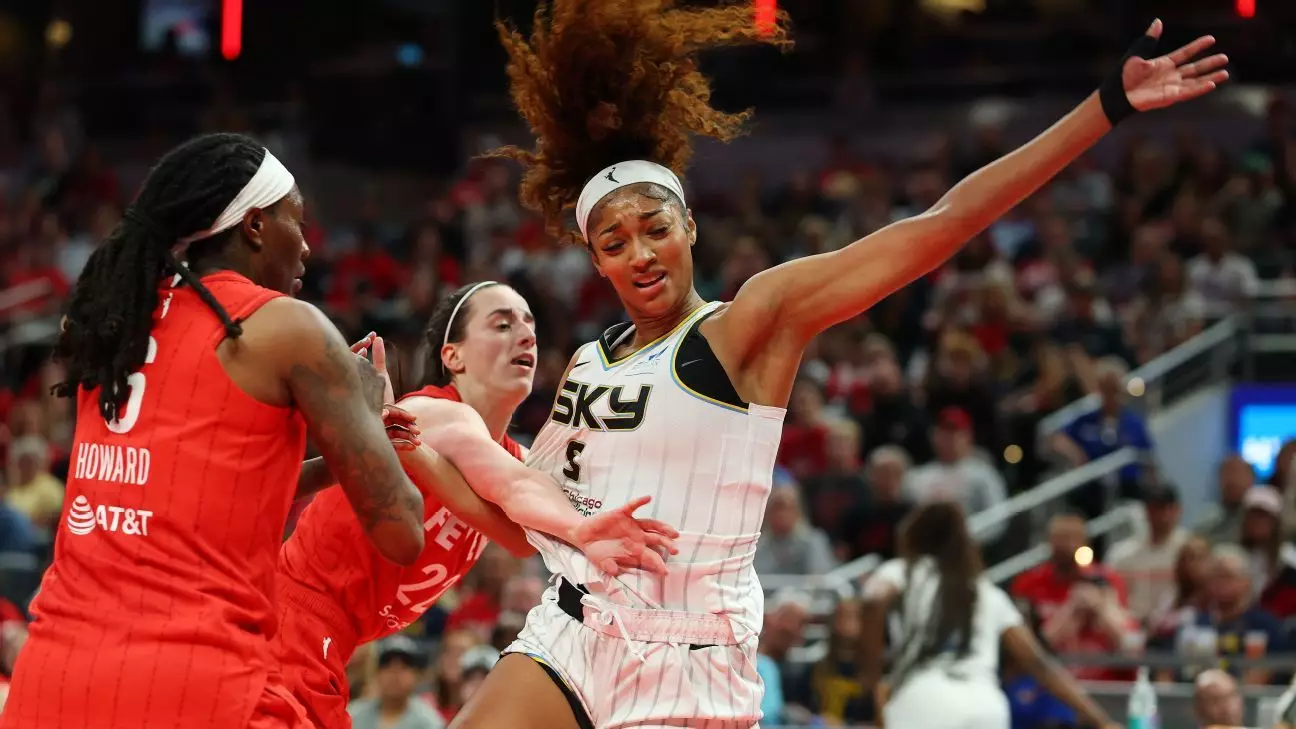The recent allegations of intolerable behavior directed toward Angel Reese at a WNBA game represent more than just isolated incidents of poor sportsmanship; they showcase a broader issue of systemic racism and discrimination that permeates sports culture. This incident occurred during a game between the Chicago Sky and the Indiana Fever, where Reese was targeted with “hateful fan comments” after a physical exchange with Caitlin Clark. The WNBA took note, stating emphatically that “racism, hate, and discrimination in all forms” have no place in their league. However, the question remains: is mere condemnation sufficient, or does it fall flat against the glaring tide of hatred that seems to be rearing its head with increasing frequency?
The Influence of Fan Culture
Fan culture in sports often veers dangerously close to toxic behavior. While there is no denying the passion that sports engender, that passion can morph into something far darker. During the aforementioned game, Reese was subjected to increasing boos from the crowd, culminating in an environment that many would find hostile. Enjoying sports should be a community-building experience where people unite, but when these fans resort to hate speech, this camaraderie is replaced by a sore wound that discriminates against players based on race, gender, or other factors.
Isn’t it ironic that the same energy that should be utilized to uplift and cheer players can instead manifest into vicious tirades of racism? Knowing that Reese, a talented player, had to contend with such behavior demonstrates a failure not just on the part of a select few individuals but points to a flawed sports culture that often allows such hatred to fester unchecked.
The League’s Responsibility
The WNBA’s response to this latest incident is both necessary and commendable. Their “No Space for Hate” initiative is a crucial step in creating a welcoming and safe environment for all players. Yet, while the league’s statements emphasize the importance of unity and respect, they also ring hollow if there are no substantive measures to follow through on. It is not enough to put out statements; action must speak louder than words.
Moreover, the involvement of the Women’s National Basketball Players Association (WNBPA) is integral to pushing these matters forward. Their call for a thorough investigation into the hateful comments directed toward Reese is a reminder that athletes deserve not just a platform to perform but the right to a respectful environment while doing so. Ensuring justice in situations like these is not just a moral obligation but a necessary step toward upholding the integrity of the sport.
Team Dynamics in the Spotlight
As the Indiana Fever emphasized their commitment to providing a safe environment for all players, the accountability of teams in sports must also be called into question. Will the Fever take tangible steps to address the concerns around fan behavior, or will it merely be business as usual? The actions (or inactions) of teams can significantly influence whether franchises promote positive fan conduct or allow the negativity to take root.
The fact that both Reese and Clark downplayed the incident between them indicates that the players may have a deeper understanding of the complexities involved in sportsmanship. Regardless of personal feelings during the game, it’s crucial to differentiate between sports rivalry and the ingrained biases that some fans may feel justified acting upon. By normalizing dialogue about such issues rather than relegating them to whispers behind closed doors, teams can serve as models of integrity and inclusivity.
When Will the Conversations Result in Change?
The unfortunate reality is that incidents of racism and hate are not merely limited to sports but are part and parcel of everyday life. The WNBA’s commitment to addressing these issues is admirable; yet it opens the door to a larger conversation about how society at large must confront these issues head-on.
The challenge lies in bridging the gap between statements of intent and actual practices that foster a culture of zero tolerance for hate. Until courageous action is implemented, and consequences are administered for those who perpetuate hate, it remains an uphill battle. It’s not merely an issue for the WNBA to tackle but requires a collective commitment from all sectors of society to champion the cause of justice, ultimately creating an environment where all individuals, regardless of their background, can thrive, feel accepted, and be celebrated for their talents.

